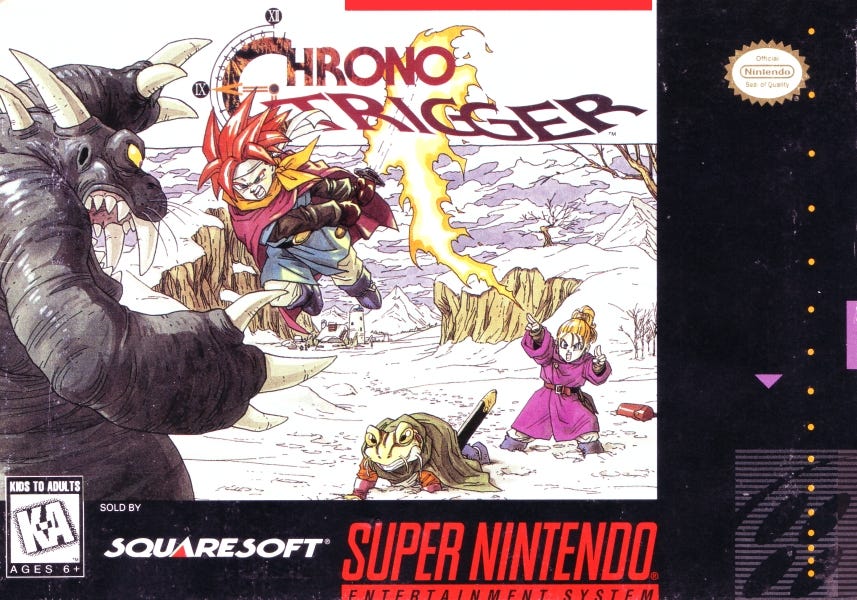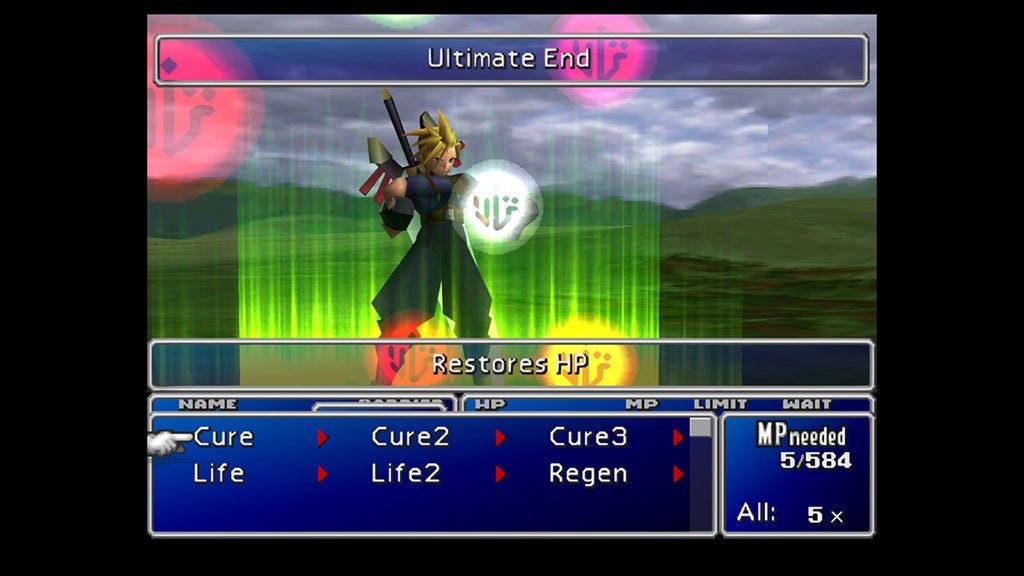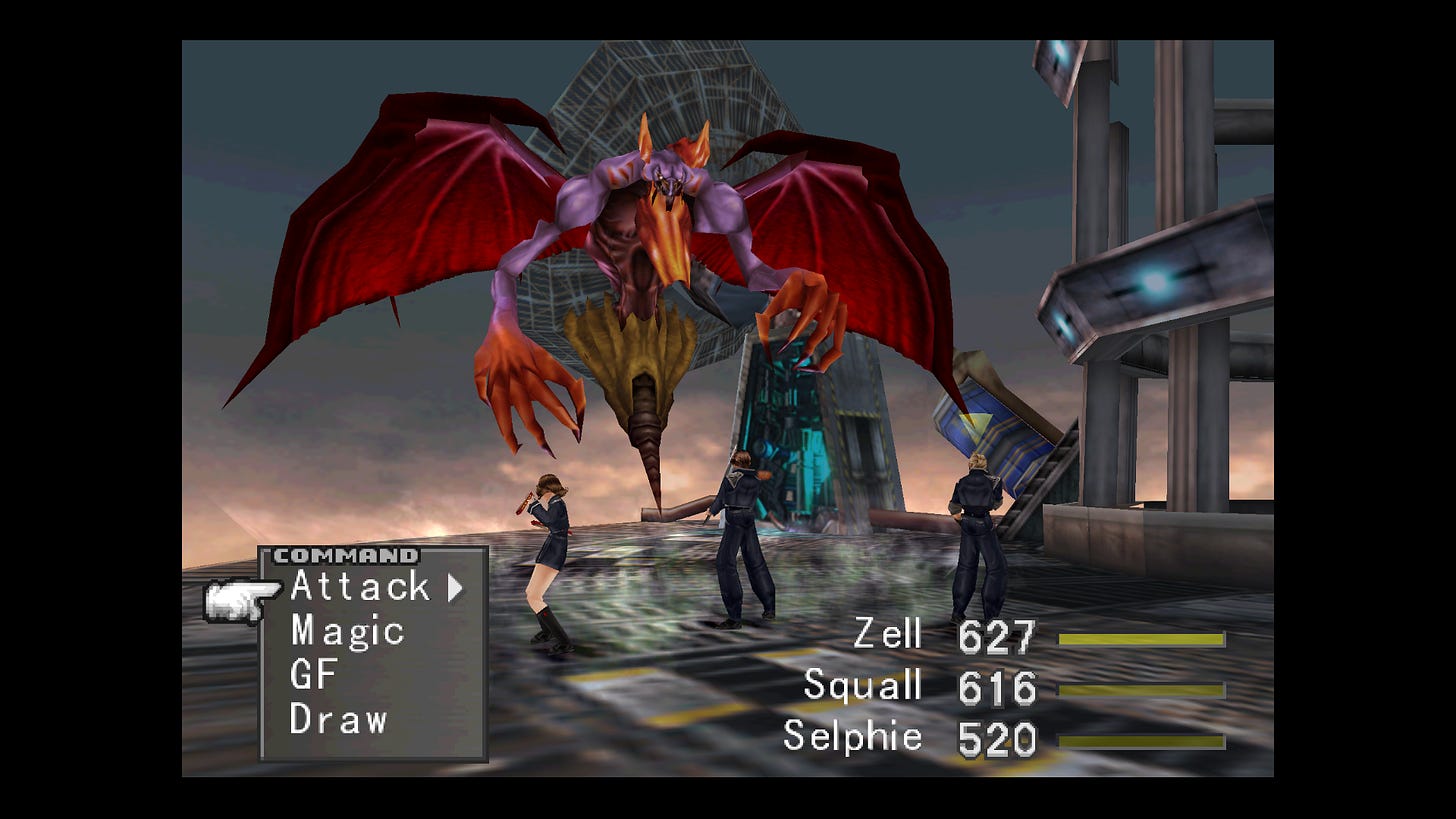The Final Fantasy series hit a milestone with the 35th anniversary of the original game, which launched in 1987. This is a series I quite literally grew up with, and I know I am not the only thirty-something to feel this way. While my joints are starting to creak when I walk down the stairs, the Final Fantasy series shows no signs of slowing down, with the sixteenth mainline entry scheduled for worldwide release this summer. Aside from the main titles, there have been dozens of sequels, prequels, side-quels, remakes, de-makes, and the like. Final Fantasy is defined by change, and on this anniversary, I wanted to examine my relationship with the series as we both grew up.
I've seemingly been a gamer my entire life. My first experiences were with Mario Bros, Duck Hunt, TMNT, and this very odd little platformer based on Peter Pan. At this age, I was sleeping on RPGs, but mostly due to my inability to read. To be fair, I still sometimes had trouble putting the TV on the right channel. I leaned into gaming as a pastime as a young child in the 1990's, very much being a "gamer" albeit unaware of it as a part of my identity. I negotiated with my parents for a Game Gear, earning one after demonstrating competency with tying my shoes. I think they were fine with me playing video games, happy I had a hobby that at least kept me safe and accounted for while they were working long hours at the restaurant they owned.
As we moved once, and then twice, within a short period, video games became a source of comfort. The local grocery store contained a bank and (inexplicably) a video store. It was cramped into the corner, offering only a few rows of VHS cassettes and game cartridges on display. One day, exasperated with how long I was taking to make a selection, my mom randomly chose one based on box art alone and handed it to me. The game was Chrono Trigger, and I was quickly hooked. Changing schools twice in one year sucked, but I was making plenty of friends. All of them were video game characters, but they were my friends, nonetheless. My parents could move us anywhere, because I always had my companions with me -- even if I had to rent them at Blockbuster for three to five nights at a time.
I was in fourth grade, very much into Lufia & the Fortress of Doom when I made friends with my classmate, Dan. He lived down the street, was in my class, and learned I played video games when I brought the manual to Breath of Fire II to lunch. We flipped through the pages together, and he mentioned a new game he was just starting to play. Had I just made a friend? Yes, and he was about to introduce me to Final Fantasy II. The music, the story, and the characters were overwhelming to my elementary school brain. The high-fantasy tale had betrayal, separated lovers, obnoxious twins, and more -- and that was before we fly to the moon. The juxtaposition of fantasy with science fiction was uncompromisingly wild to my young brain, hard-wiring it to expect more of this stuff from my entertainment.
We finished Final Fantasy II and steamrolled right into the next one. Final Fantasy III was better in nearly every conceivable way, pushing the Super Nintendo to its limits in terms of graphics and music. While Final Fantasy II assigned permanent job roles to each party member, Final Fantasy III went the other direction and allowed players to customize each character through the use of the Esper system. Certain characters may have a predisposition towards certain styles, but there is nothing stopping players from turning Sabin into the most muscled-out magic user you've ever seen. The best part about the Final Fantasy series at this time was seeing the increase in spectacle with each title, and this was no truer than the jump from the Super Nintendo to the PlayStation.
Final Fantasy was beginning to look different, and so was I. Final Fantasy VII was a milestone for video games as culture. I remember staring at a box of Pepsi cans branded with a Final Fantasy VII promotion, seething with lust for a game that was not even out yet. The commercials were even more tantalizing, taunting not only me but America as a whole with a gaming experience we had never quite realized before. Millions remember experiencing the opening cinematic for the first time in 1997, and then again in 2020 with the same fervor we did all those years ago with the release of Final Fantasy VII Remake. I played the game perhaps endlessly, refusing to even turn it off. I couldn't - I didn't have a memory card!
I recall coming up to the team's departure from Midgar following the dramatic escape from the Shinra building. I was astonished to come into the world map and see it was just the beginning of the adventure. I tried coasting to the Mythril Cave without a Chocobo, where I learned about the Midgar Zolom the hard way. After crying at the game over screen and pleading with my parents, I was able to restart the game the next day with a fresh memory card inserted. This was also during the era when I would rename all characters after people in my family. During this initial run of Final Fantasy VII, I named Aerith after my older sister. After the shocking events at the end of disc one, I've never renamed a character after my siblings (or anyone else) ever again.
I had become a true RPG fiend through the Final Fantasy series, even if I picked up other games in its wake. When Final Fantasy VIII was announced, I started strategizing how to get it at launch. I proposed an agreement with my mother that, in return for fulfilling certain conditions, I would receive a copy of Final Fantasy VIII on launch date. My end of the agreement required normal kid chores - clean room, good grades, and the like. We were sitting in a booth at their restaurant as I drew up our formal agreement on the back of a paper placement. We signed it, and I held onto our written contract for months until that fateful September afternoon.
My twin sister and I came home from school on September 9, 1999 to an empty home. A few moments later and my mom arrived home with some shopping bags in tow. My face revealed disappointment as my brain registered bags from clothing or home goods stores as she placed them on the counter. Had I lived up to my end of the contract? Certainly not — I was 12 — but I was still deflated upon realizing there was no bag for me. Except tucked away in a larger a bag was a small one from FYE, and in it was my copy of Final Fantasy VIII.
VII and VIII continued the series' rich tradition of subverting expectations. As IV and V toyed with convention with regard to job classes and the rigid structure of same, VI explored letting players build their characters as they saw fit. VII further developed this mechanic with the Materia system, allowing players to customize characters again as they chose. Savvy players could rig turns to allow numerous iterations of an all-powerful summon or wreak other forms of havoc. VIII continued this experimentation with the controversial Guardian Force and Junction systems. Characters did not learn magic as they gained experience; rather they were to draw or absorb them from enemies or spots on the map. Players could then link specific spells to character statistics, boosting them based on the spell quantity linked to each stat. Use too much of the junctioned spell and the statistic would decrease, encouraging judicious use of magic.
As VII and VIII moved further away from fantasy settings, Final Fantasy IX was a pivot back, although retaining the series' taste for science fiction as well. There was a months-long period between the Japanese and North American releases, and I was simply unable to wait. I obtained a copy of the Japanese version and played it all the way until the end of the first disc, where a glitch prevented me from continuing. I must've played the first disc, in Japanese, a half dozen times before the game officially released in the West.
As the series continued to gain traction in the United States, Square officially brought over Final Fantasy II and V with ports to the PlayStation, marking their first appearance state-side. Just like the previous console era, Final Fantasy X served to show the true spectacle that JRPGs could provide when released for the PlayStation 2 in December 2001. I thought about this game constantly after it was revealed, even buying a copy of Final Fantasy: The Spirits Within on DVD just so I could repeatedly watch the trailer for X in the bonus features. I asked for a PlayStation 2 for Christmas and spotted it in my parents’ room one day. I emptied the contents of the box in my room and filled it up with books before placing it back in the room to be wrapped. Console in hand, I made sure to get the game and snuck away to my room to play it, an entire week before Christmas.
It was a wonderful Christmas break -- and this time, I was sure to have a memory card.
To be continued with Level 2. If you enjoyed this, please subscribe to be notified when the next level is released.







